Indigenous Governance Database
custom and tradition
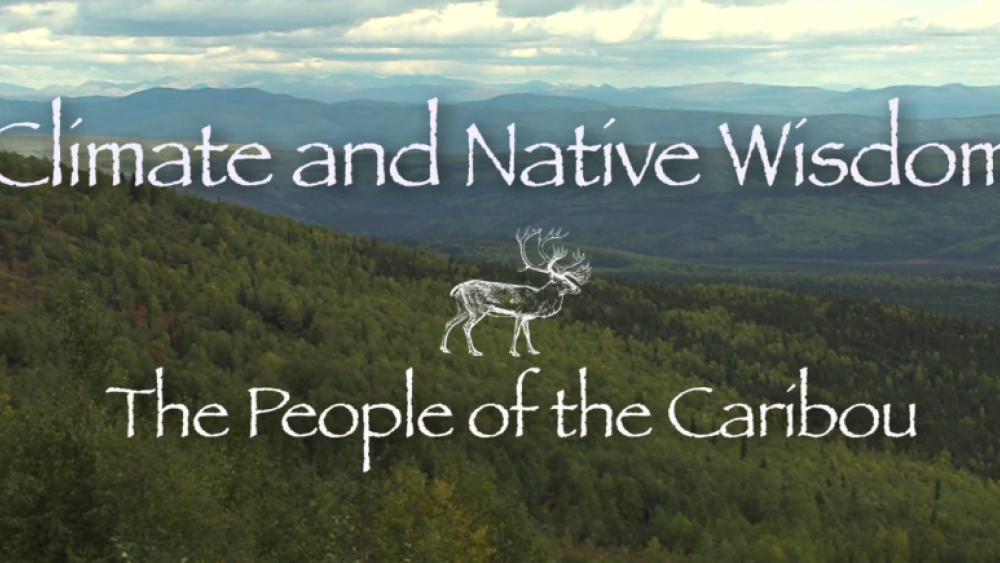
The Cutting Edge: Climate and the People of the Caribou
Wisdom of the Elders, Inc. (Wisdom) is producing a new series of Native American climate documentaries along with our fourth series of Wisdom of the Elders Radio Program. These oral history, cultural arts and climate science series feature the rich voices of more than 40 exemplary Native elders,…
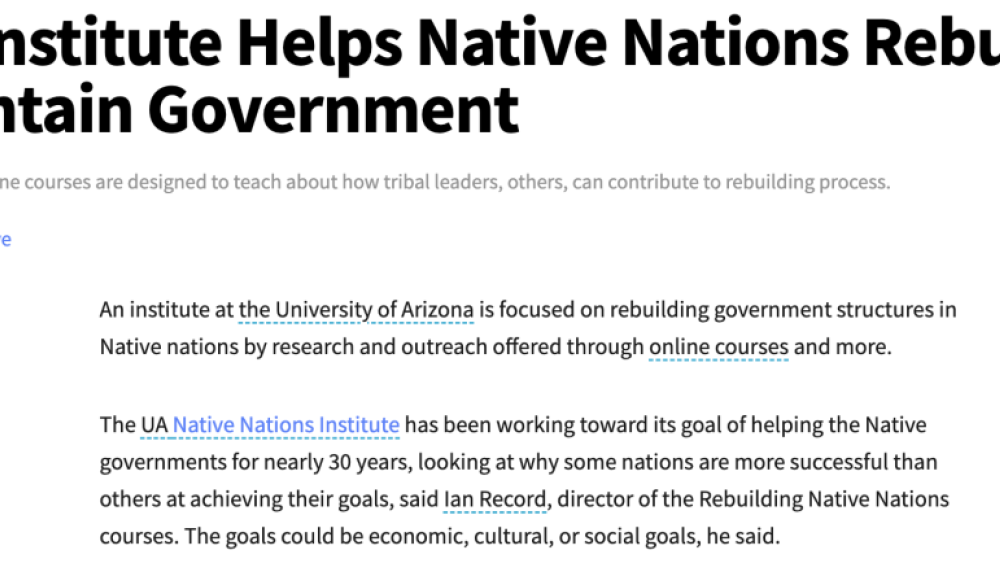
UA Institute Helps Native Nations Rebuild, Maintain Government
An institute at the University of Arizona is focused on rebuilding government structures in Native nations by research and outreach offered through online courses and more. The UA Native Nations Institute has been working toward its goal of helping the Native governments for nearly 30 years,…
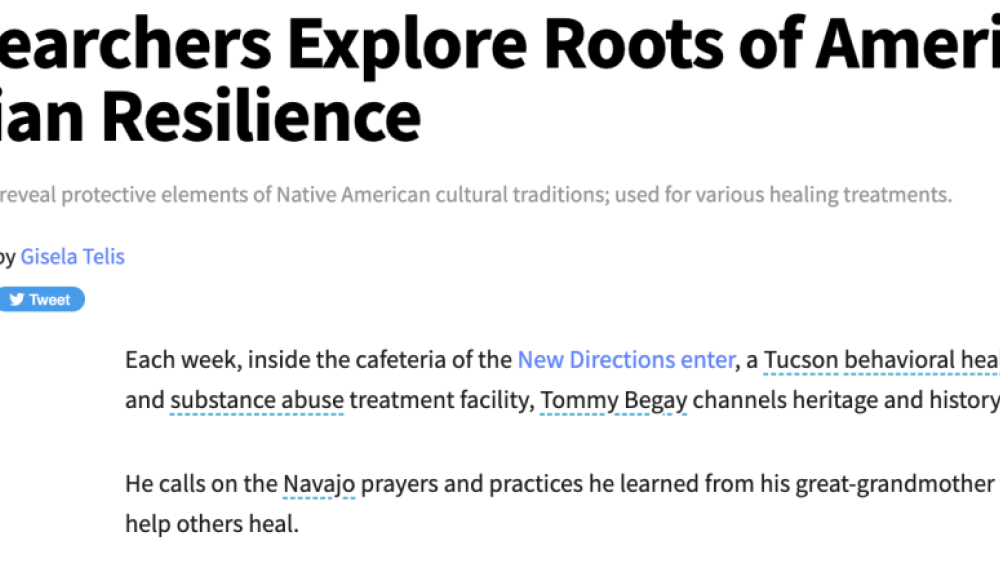
Researchers Explore Roots of American Indian Resilience
Each week, inside the cafeteria of the New Directions enter, a Tucson behavioral health and substance abuse treatment facility, Tommy Begay channels heritage and history. He calls on the Navajo prayers and practices he learned from his great-grandmother to help others heal. “She taught me about…

Chief Dale Awasis: Thunderchild First Nation
Chief Awasis of ThunderChild First Nation talks about traditional governance from before contact, Indian Act governance and how some nations are beginning to combine them into a third type of governance.
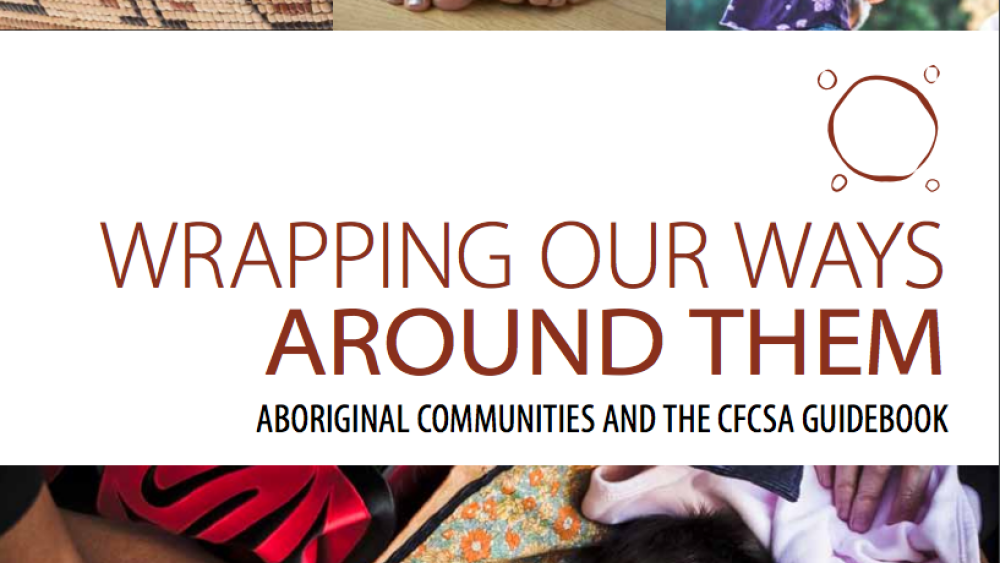
Wrapping Our Ways Around Them: Aboriginal Communities and the CFCSA Guidebook
This Guidebook is based on the belief that Aboriginal peoples need to know, and work with, the systems that impact children and families today such as the Child, Family and Community Service Act (CFCSA), Provincial Court (Child, Family and Community Service Act) Rules (Rules), Child, Family and…
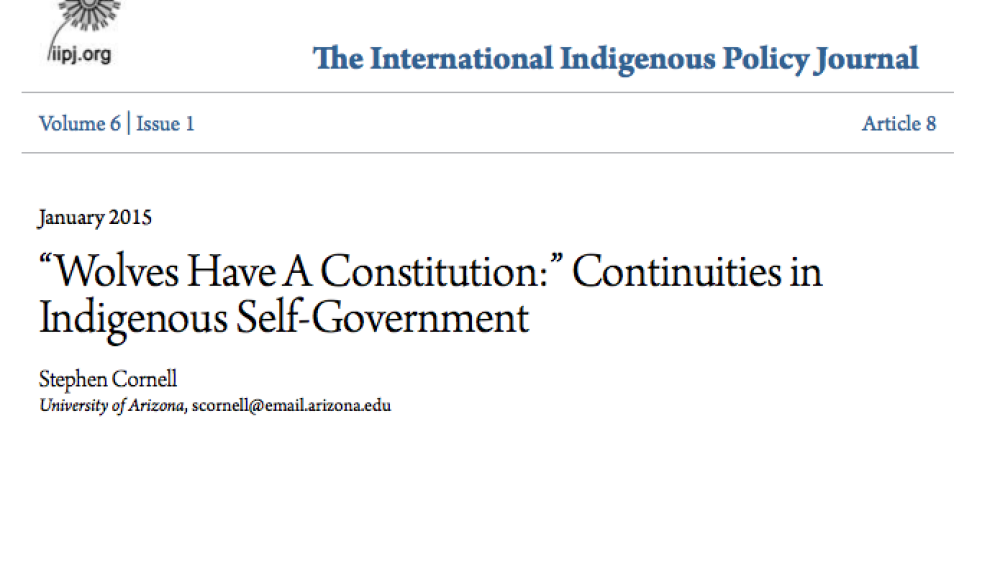
Wolves Have A Constitution: Continuities in Indigenous Self-Government
This article is about constitutionalism as an Indigenous tradition. The political idea of constitutionalism is the idea that the process of governing is itself governed by a set of foundational laws or rules. There is ample evidence that Indigenous nations in North America–and in Australia and New…
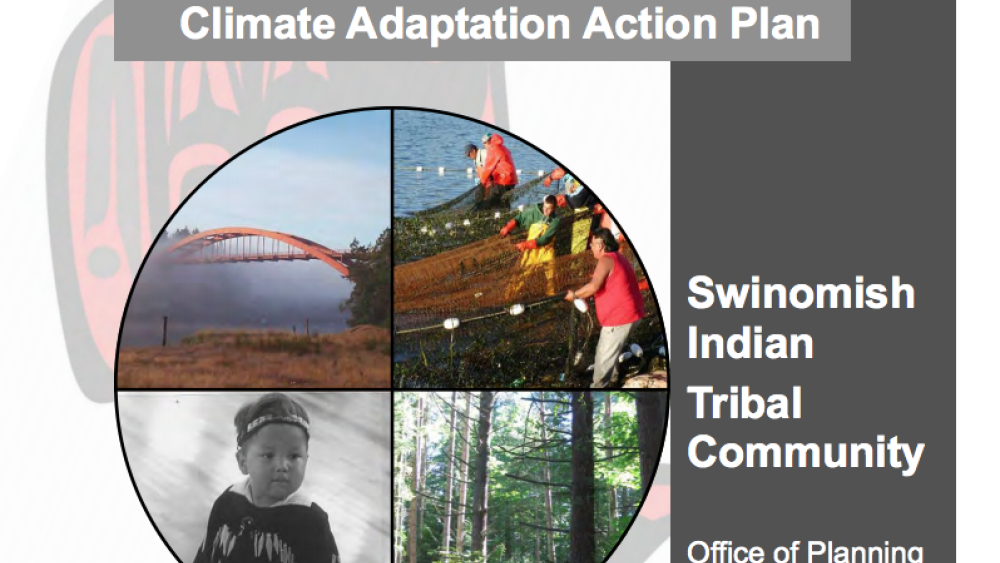
Swinomish Climate Change Initiative: Climate Adaptation Action Plan
In the fall of 2008 the Swinomish Indian Tribal Community started work on a landmark two-year Climate Change Initiative to study the impacts of climate change on the resources, assets, and community of the Swinomish Indian Reservation and to develop recommendations on actions to adapt to projected…
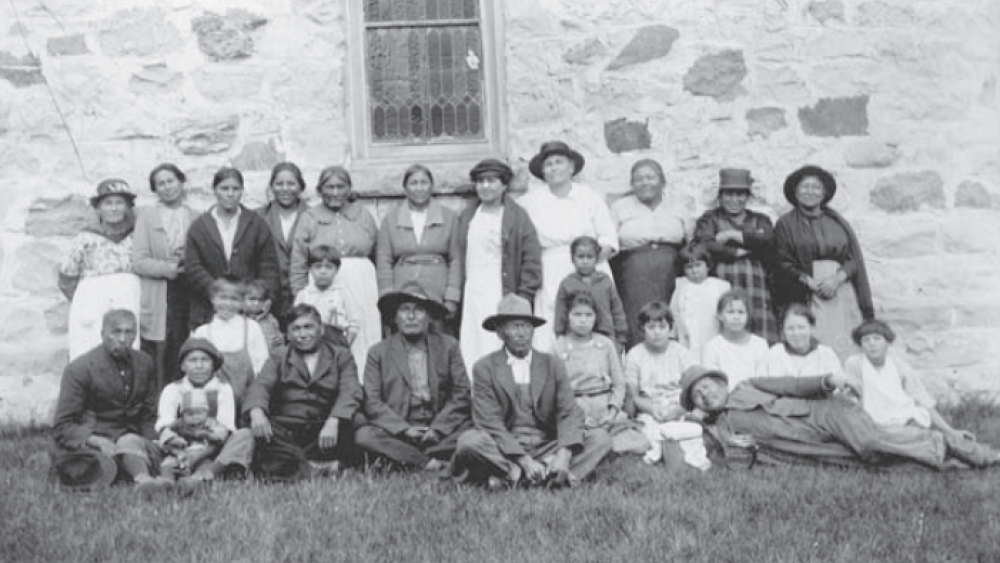
An Anishinaabe Tribalography: Investigating and Interweaving Conceptions of Identity During the 1910s on the White Earth Reservation
This article explores the varied ways in which the Anishinaabeg of White Earth defined themselves during the early twentieth century. It consists of two primary parts. In part 1 I go beyond the artifacts in order to enliven the history, to offer an alternative way of remembering the past. In…
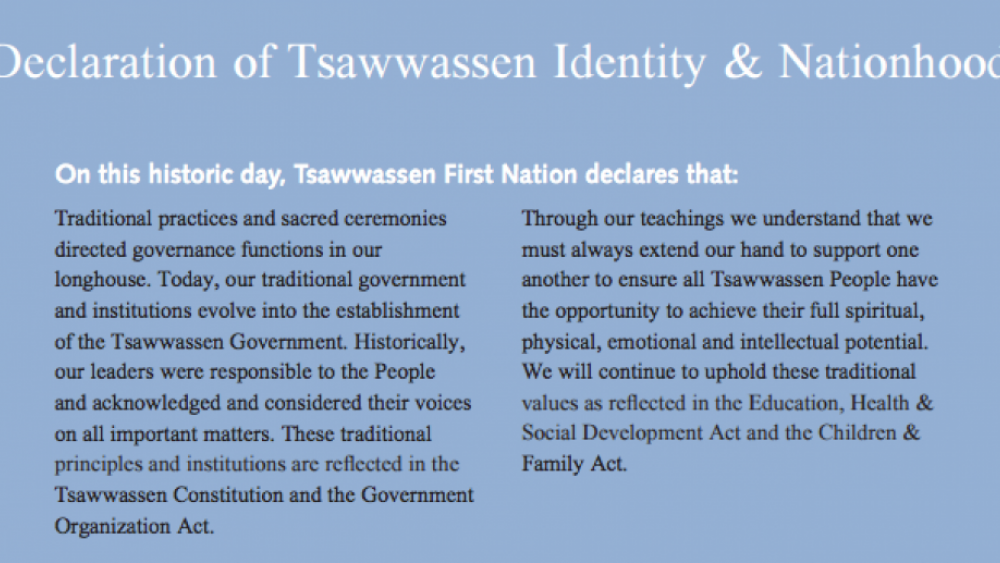
Declaration of Tsawwassen Identity & Nationhood
We are Tsawwassen People "People facing the sea", descendants of our ancestors who exercised sovereign authority over our land for thousands of years. Tsawwassen People were governed under the advice and guidance of leaders, highborn women, headmen, and speakers through countless generations...
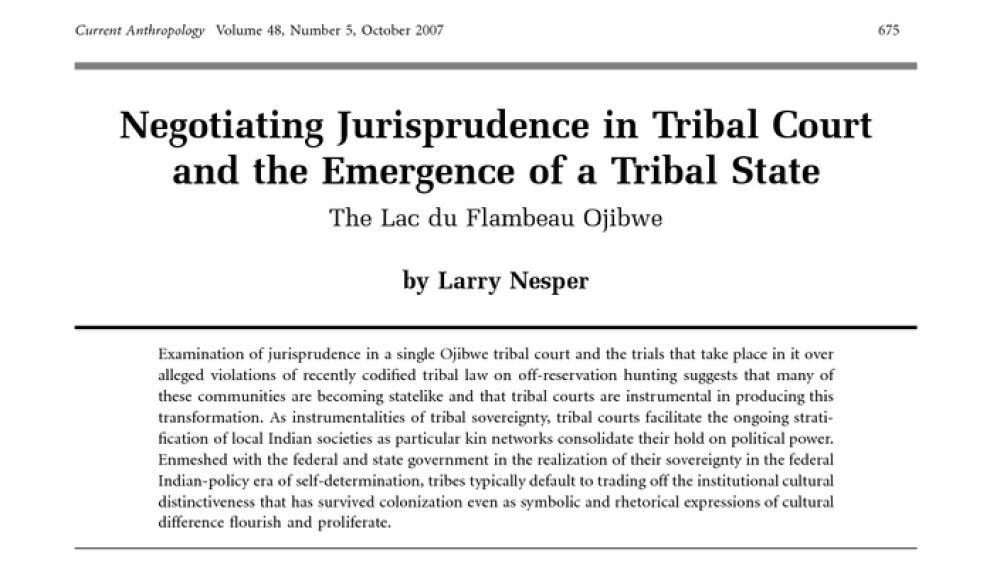
Negotiating Jurisprudence in Tribal Court and the Emergence of a Tribal State: The Lac du Flambeau Ojibwe
The interaction between American Indian activism and changes in federal Indian policy since the 1960s has transformed American Indian tribes from largely powerless and impoverished kinshipâ€based communities into neocolonial statelike entities (Wilkinson 2005).1 Representing themselves as distinct…
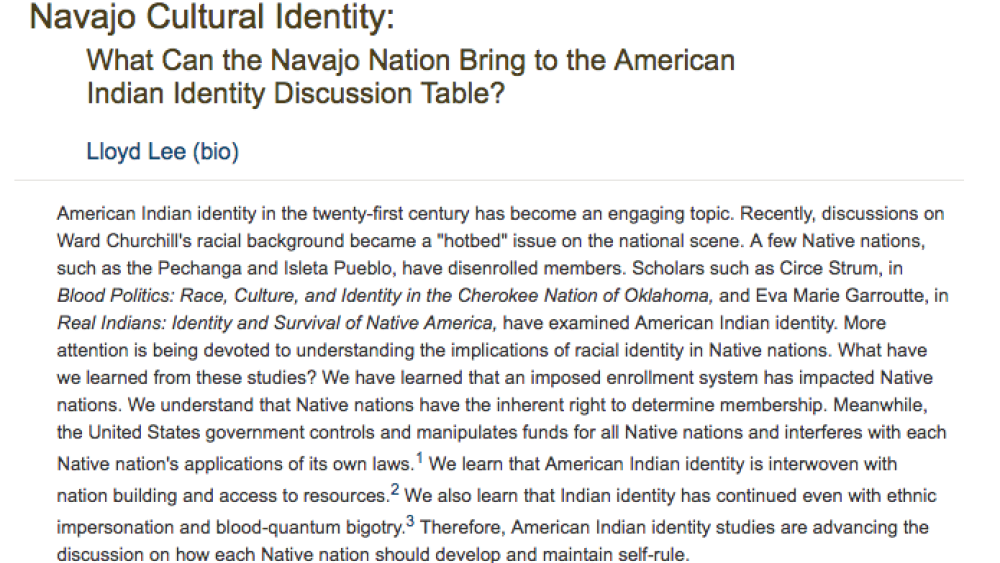
Navajo Cultural Identity: What can the Navajo Nation bring to the American Indian Identity Discussion Table?
American Indian identity in the twenty-first century has become an engaging topic. Recently, discussions on Ward Churchilla's racial background became a hotbed issue on the national scene. A few Native nations, such as the Pechanga and Isleta Pueblo, have disenrolled members. Scholars such as Circe…
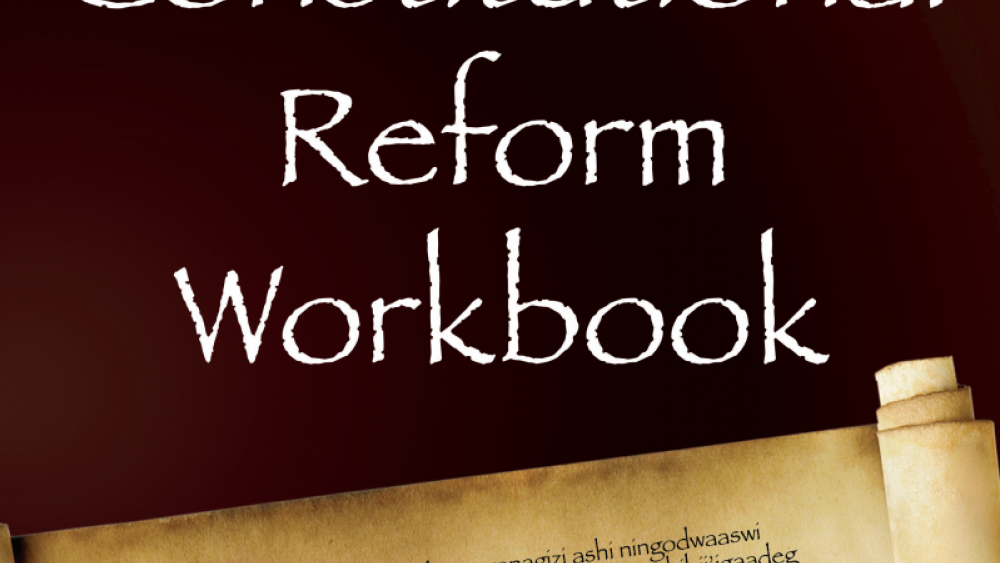
White Earth Nation Constitutional Reform Workbook
The core purpose of this Constitution is to take action and directly express, through that action, native cultural sovereignty. This workbook is designed to help the citizens of the White Earth Nation to understand their constitution. Through this effort and through your understanding of the…
![Tribal Law as Indigenous Social Reality and Separate Consciousness: [Re]Incorporating Customs and Traditions into Tribal Law Tribal Law as Indigenous Social Reality and Separate Consciousness: [Re]Incorporating Customs and Traditions into Tribal Law](/sites/nnigovernance.arizona.edu/files/styles/resources/public/resources/Screen%2520Shot%25202016-10-11%2520at%25201.22.13%2520PM.png?itok=r-DrCTma)
Tribal Law as Indigenous Social Reality and Separate Consciousness: [Re]Incorporating Customs and Traditions into Tribal Law
At some point in my legal career, I recall becoming increasingly uncomfortable with the inconsistencies between the values in the written law of various indigenous nations and the values I knew were embedded in indigenous societies themselves. The two are not entirely in harmony, and in fact, in…
Pagination
- First page
- …
- 1
- 2
- …
